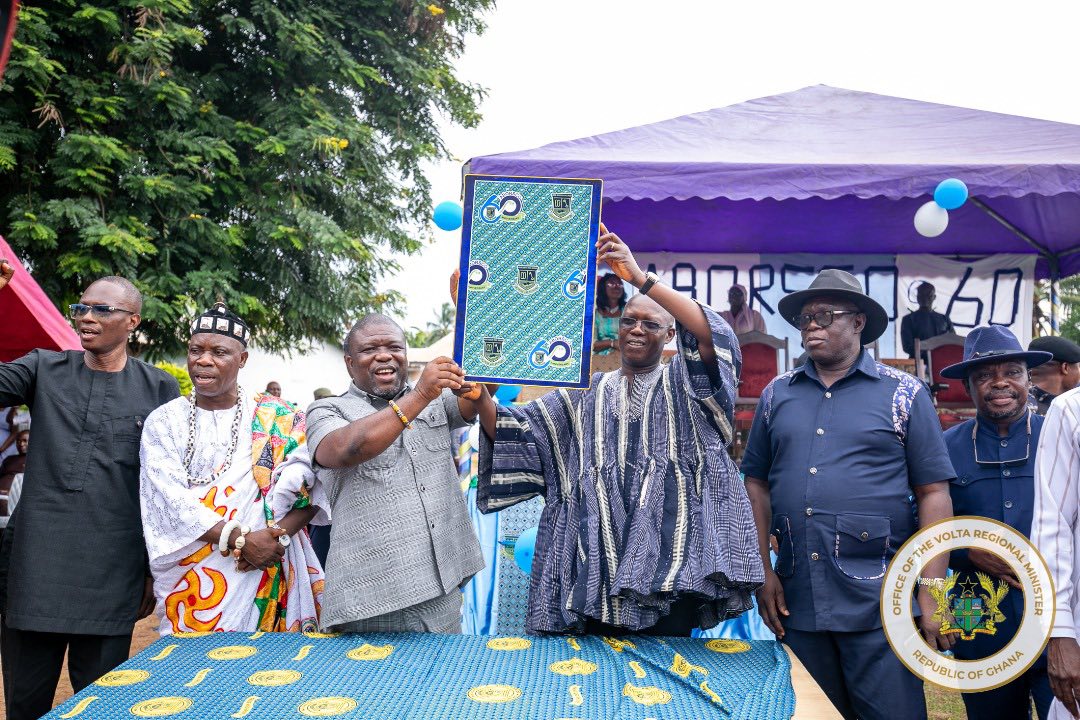The Denmark Ambassador to Ghana Tom Norring recently hosted a high level stakeholder event on, the EU Deforestation Regulation (EUDR), which requires companies to ensure products entering the EU market are deforestation-free, that will come into effect on December 30, 2025, after a one-year postponement.
To educate Ghanaians on the benefits of a healthy ecosystem, the Denmark embassy in Ghana in collaboration with Preferred by Nature is actively supporting businesses in complying with the EU Deforestation Regulation (EUDR) by providing tools, resources, and certification services, including an open-source Due Diligence Toolkit and a risk-based approach to auditing, to ensure sustainable sourcing and responsible supply chains.
The seminar was hosted by the Denmark embassy in Ghana
Over 30 participants from governments, Civil Society Groups, Non-Governmental Organisations, and International development partners, took part in the dialogue.
The dialogue brought people together from the EU, and Ghana to discuss the relevance of nature-based solutions for building resilience to climate change, debate the major challenges around the implementation, governance, and financing of nature-based solutions and how to overcome them, and examine how various stakeholders can work together for successful, sustainable nature-based solutions in Ghana.
They also reflected on the role of nature-based solutions for climate adaptation and
They noted that “Natural systems are on the front-line of the fight against climate change, both because they are impacted by climate change, and because they have high potential for delivering multiple ecosystem services such as carbon sequestration, livelihoods enhancement, regulation of air, soil and water quality, and pollination.
“Ghana’s ecosystems (such as mangroves are constantly under threat from climate change, impacting the wellbeing and resilience of citizens whose livelihoods depend on farming and fisheries. This risks undermining economic development, pushing people further into food insecurity and poverty.
“The EU recognizes that healthy ecosystems underpin global food and nutrition security, and can provide direct livelihoods for millions in Ghana., including citizens that are highly vulnerable to the impacts of climate change.
Ghana has shown leadership in biodiversity, however, more innovation and cooperation are required in transitioning to sustainable agriculture and land use, improving ocean resilience and coastal sustainability, and scaling of other existing initiatives and mechanisms, recognized under the (EUDR)
“Through these meetings, we aim to develop and consolidate an effective community of practitioners and actors to promote the design, development, and upscaling of nature-based solutions in Ghana, “said Sandra Razanamandrato
Key Discussions
Preferred by nature, discussions centered on the relevance of nature-based solutions for building resilience to climate change from different perspectives. The major challenges around the implementation, governance, and financing of nature-based solutions and how to overcome them. It also examined how various stakeholders can work together for successful, sustainable nature-based solutions in Ghana
Key takeaways from the seminar include: the need for better monitoring of protected areas; the critical role of leaders and groups in ecosystem restoration; expansion of clean cooking to reduce deforestation; scaling-up education and sensitization on the environment; private-sector engagement for sustainable management of nature; explicitly linking Ghana’s Nationally Determined Contribution and nature; and the centrality of sustainable livelihoods to nature-based solutions.
Ghana has been very forward-leaning on nature based solutions to climate change joining the Commonwealth Clean Ocean Alliance.
However, more innovation and cooperation are required in transitioning to sustainable agriculture and land use, improving ocean resilience and coastal sustainability, and scaling up other existing initiatives and mechanisms, including those recognized under the (EUDR) The ambition of the seminar was to explore how to take these actions to the next level.
The introductory session included remarks from Tom Norring, Denmark’s Ambassador to Ghana who hosted participants acknowledging that the Danish are a warm-hearted people and cautioning that products produced in Europe must not impact on other countries’ deforestation.
Irchad Razaaly Ambassador to EU delegation to Ghana in his welcome address said climate change is a global challenge affecting all countries including Ghana that has significant impacts on agricultural commodity production.
According to Razaaly the EU as a major consumer of commodities linked to deforestation is taking action via the EU deforestation regulation (EUDR) to promote the consumption of deforestation-free products and reduce the EU, s contribution to global deforestation.
The seminar provided the opportunity to promote renewed and scaled-up efforts to halt desertification, and deforestation and restore ecosystems, and encourage commitments to adopting nature-based solutions in Ghana policies and programs,
Preferred by nature Capacity Building
In the lead-up to The EU Deforestation Regulation (EUDR), which requires companies to ensure products entering the EU market are deforestation-free will seek and
Support EUDR Compliance:
EUDR Alignment:
Preferred by Nature has been closely following the development of the EUDR since its proposal in November 2021 and is committed to supporting businesses and stakeholders in complying with the regulation.
Sustainability Framework:
Preferred by Nature’s Sustainability Framework has been updated to align with EUDR requirements, providing a comprehensive approach to managing sustainability and legal commitments across the supply chain.
Due Diligence Toolkit:
Preferred by Nature offers an open-source Due Diligence Toolkit to support responsible sourcing and regulatory alignment, including guidance documents, templates, and sample procedures.
Risk-Based Auditing:
Preferred by Nature employs a risk-based approach to auditing, allowing organizations to focus on high-risk areas while simplifying certification procedures and making auditing more efficient and cost-effective.
EUDR Training:
Preferred by Nature hosts seminars and webinars worldwide to raise awareness about the EUDR and its requirements, and plans a series of EUDR due diligence training courses.
PEFC EUDR Due Diligence System (DDS) verification service:
Preferred by Nature is approved to provide PEFC EUDR DDS verification service, helping businesses demonstrate that their forest and tree-based materials are deforestation-free, legally harvested, and properly documented.
Presentations
According to the organization global director of regional engagement and communication, sandra Razanamandrato noted that, through her outfit preferred by nature, it is necessary to bridge the gaps in the supply chain to facilitate compliance for both government and the private sector .and their mission is to build awareness of natural assets through initiatives such as supporting innovative recycling schemes to reduce pollution, and creating innovative socio-economic opportunities in Ghana.
The CEO of Tree crop development authority added during the seminar that his outfit is bringing on board and ensure all sectors in the industry are properly registered and receive the EUDR standard certifications.
“NGO Representatives that made presentations at the seminar included Jakcob Nordborg Ryding (senior director strategic projects); Nargiza Shaidyldaeva(senior agriculture manager)
The EU Deforestation Regulation (EUDR), which promotes the use of deforestation-free products, is imminent. Discover what you need to know
What is the EUDR?
The EUDR promotes the consumption of deforestation-free products to vastly reduce greenhouse gas (GHG) emissions while assisting the fight against global biodiversity loss. It assures that the EU will not contribute to deforestation or forest degradation.
Organizations marketing, importing or exporting to or from the EU any items in the following list, including derived products, must perform due diligence and be EUDR compliant. This guarantees that their commodities are not associated with deforestation, forest degradation or breaches in local environmental or social legislation in the country of production.
The EUDR comes into effect on December 30, 2025, covering commodities produced on land not subject to deforestation after December 31, 2020.
What exactly does the EUDR cover?
The new regulation covers:
Cattle – live cattle, meat, and leather
Cocoa – cocoa beans, paste, butter, powder and chocolate products
Coffee – roasted, unroasted, and decaffeinated coffee, and substitutes containing any proportion of coffee
Oil palm – nuts, kernels, palm oil, glycerol and palm oil-derived fatty acids
Rubber – natural rubber, gums, and all articles of vulcanized rubber, whether hard or not, including tires and clothing
Soya – soya beans, meal oil, and residues, including oilcake
Wood – logs, processed wood, wooden furniture, paper and packaging
Who is responsible and what are the penalties?
The primary responsibility for EUDR compliance lies with the organization placing the commodity on the EU market or exporting it. This organization must follow due diligence, transparently and informatively, along the supply chain.
Consequences for noncompliance include hefty fines, the confiscation of products/revenue, and temporary exclusion from the market.
What are the benefits of EUDR compliance?
We can enable you to:
Decrease reputational and legal risks
Meet and exceed consumer demands for ethical, environmentally friendly, and legal products
Enhance supply chain sustainability and traceabilitySecure your supply
Contribute to global efforts to combat deforestation and climate change, and promote responsible land use
By Frank Owusu Obimpeh






































